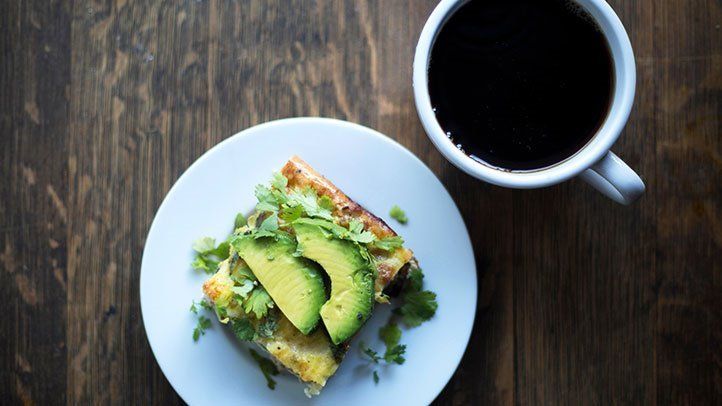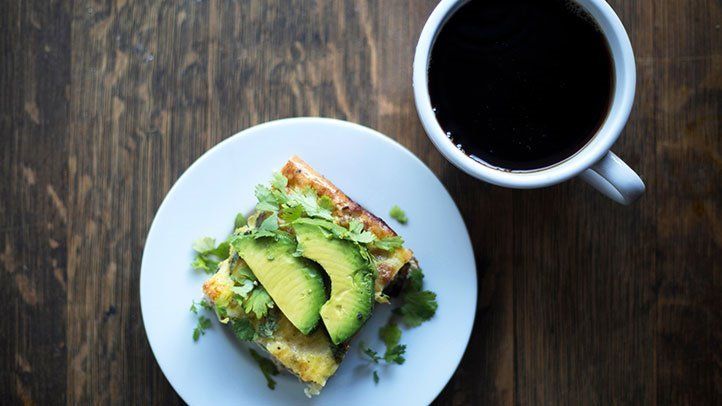
Metabolism friendly foods to eat before bed can significantly impact your sleep quality and overall well-being. Choosing the right foods before hitting the hay can influence your body’s metabolic processes during rest, affecting everything from energy levels to muscle repair. This guide delves into the science behind metabolism, explores foods to avoid and those that are ideal for pre-sleep consumption, and provides practical tips on portion control and timing.
Understanding your individual needs, considering factors like age and activity level, is crucial for making informed choices. We’ll also touch on the importance of consulting with healthcare professionals and offer a variety of sample meal plans to cater to different dietary preferences.
Understanding Metabolism
Metabolism is the incredible process our bodies use to transform food into energy. It’s a complex interplay of chemical reactions that fuels everything from breathing and thinking to moving and repairing tissues. Understanding the fundamentals of metabolism can empower us to make informed choices about the foods we eat and how our bodies utilize them.This process is crucial for maintaining our health and well-being.
A well-functioning metabolism helps regulate weight, energy levels, and overall bodily functions. By understanding the mechanics of our metabolic processes, we can gain insights into how different foods affect our energy expenditure and utilization.
Basic Principles of Metabolism
Metabolism encompasses a vast array of chemical reactions. It can be broadly categorized into two main components: catabolism and anabolism. Catabolism breaks down complex molecules into simpler ones, releasing energy in the process. Anabolism, conversely, uses energy to build complex molecules from simpler ones, essential for growth, repair, and maintenance. This dynamic balance is crucial for maintaining health.
Simplified Explanation of Metabolism
Metabolism is essentially how our bodies convert the nutrients from food into usable energy. This process involves breaking down carbohydrates, proteins, and fats into smaller molecules. These molecules are then used to produce adenosine triphosphate (ATP), the body’s primary energy currency. The amount of energy expended or utilized depends on factors like activity level, age, and genetics.
Ultimately, the efficiency of this process dictates how effectively our bodies use the energy from food.
Basal Metabolic Rate vs. Resting Metabolic Rate
Basal metabolic rate (BMR) is the minimum amount of energy our bodies expend to maintain essential functions at rest, such as breathing, circulating blood, and regulating body temperature. Resting metabolic rate (RMR) is a slightly higher measurement, as it accounts for a few additional daily activities. The difference between the two is often small, but it is important to note that RMR is usually slightly higher than BMR.
Both are essential for understanding the energy needs of our bodies at rest.
Macronutrient Effects on Metabolism
Different macronutrients—carbohydrates, proteins, and fats—have varying effects on metabolism. Carbohydrates are the body’s primary source of quick energy, rapidly broken down into glucose. Proteins are essential for building and repairing tissues, and their digestion and processing require more energy compared to carbohydrates. Fats are a concentrated source of energy, playing a critical role in hormone production and cell function, and are digested more slowly than carbohydrates or proteins.
Looking for metabolism-boosting snacks to enjoy before hitting the hay? Choosing the right foods can significantly impact your sleep quality and overall well-being. For instance, consider incorporating foods like Greek yogurt, a handful of almonds, or a small bowl of oatmeal. And while we’re on the subject of mindful eating, exploring the intricate designs of north of north indigenous costume design reminds us of the beautiful artistry and cultural richness of our world.
Ultimately, mindful food choices before bed contribute to a healthier, more restful night’s sleep. These foods are a great complement to a good night’s rest.
Macronutrient Impact Table
| Macronutrient | Impact on Metabolism | Examples of Foods |
|---|---|---|
| Carbohydrates (High Glycemic Index) | Rapid energy spike, potential for blood sugar fluctuations | White bread, sugary cereals, white rice |
| Carbohydrates (Low Glycemic Index) | Steady energy release, less impact on blood sugar | Oatmeal, quinoa, fruits (e.g., berries) |
| Protein | Increased metabolic rate due to thermic effect of food (TEF) | Lean meats, fish, beans, lentils |
| Fat | Slower digestion, sustained energy release | Avocado, nuts, seeds, olive oil |
Foods to Avoid Before Bed
Choosing your pre-sleep meals wisely is crucial for a restful night and a healthy metabolism. Consuming the wrong foods can disrupt your sleep patterns, hinder your body’s natural repair processes, and potentially lead to metabolic imbalances. Understanding which foods to avoid before hitting the hay can significantly improve your overall well-being.High-sugar and high-fat foods often lead to digestive issues, blood sugar spikes, and difficulties falling asleep.
Thinking about what to munch on before bed? Choosing metabolism-friendly foods is key for a good night’s rest and supporting your body’s processes. Lean proteins, like Greek yogurt, and complex carbs, such as quinoa, are great choices. While you’re pondering these options, check out the innovative Prada frames in transit at Milan Design Week, created by Formafantasma prada frames in transit milan design week formafantasma.
These sleek designs might inspire you to fuel your body with the right foods before you hit the hay, ensuring a restful night. Ultimately, smart snacking before bed is essential for a healthy metabolism.
These, in turn, can negatively impact your metabolic health. Opting for lighter, more easily digestible meals closer to bedtime is key to maximizing sleep quality and supporting a healthy metabolism.
High Sugar Content and its Impact on Sleep
High sugar intake before bed can lead to a significant increase in blood sugar levels. This rapid surge can disrupt the body’s natural sleep-wake cycle, leading to difficulty falling asleep, restless nights, and potentially impacting the quality of sleep. The body’s response to sugar can result in a subsequent drop in blood sugar, causing feelings of fatigue and irritability, further hindering sleep.
For example, consuming a large sugary dessert before bed can cause a noticeable blood sugar spike, followed by a crash that keeps you awake.
Thinking about what to eat before bed to keep my metabolism humming? It’s all about those metabolism-friendly foods! A light snack of Greek yogurt with berries, or some chamomile tea with a few slices of cucumber are great options. Speaking of night-time snacks, I was totally impressed by Meghan Markle’s recent outing at a Broadway Gypsy night out in NYC! Meghan Markle’s new York City Broadway gypsy night out was a stylish affair, but it got me thinking about how important those bedtime snacks are.
Sticking to these light choices will help keep my metabolism going strong all night long, no matter how busy my evenings get.
High Fat Intake and its Impact on Digestion and Metabolism, Metabolism friendly foods to eat before bed
High-fat meals, particularly those rich in saturated and unhealthy fats, can significantly slow down digestion before bed. This can lead to discomfort, indigestion, and disrupted sleep. The digestive process requires a considerable amount of energy, diverting resources away from the body’s natural repair and recovery processes. Furthermore, a heavy meal high in fat can lead to an increased workload for the liver and pancreas, organs that are already working hard to maintain metabolic balance.
This increased workload can disrupt the body’s natural rhythm and impair sleep. For instance, a greasy pizza eaten close to bedtime is likely to cause indigestion and disrupt sleep.
Comparison of Suitable and Unsuitable Foods Before Bed
| Food Category | Foods to Avoid Before Bed | Foods to Recommend Before Bed |
|---|---|---|
| Sugary Foods | Cakes, cookies, pastries, sugary drinks, candy | Plain yogurt, fruits like berries (in moderation), small portions of whole-grain crackers |
| High-Fat Foods | Fried foods, greasy dishes, processed meats, full-fat dairy products | Lean proteins, low-fat dairy, soups, broths |
| Highly Processed Foods | Fast food, processed snacks, packaged meals | Whole grains, fresh vegetables, lean protein sources |
| Large Meals | Large portions of any type of food | Smaller, easily digestible meals |
The table above provides a concise comparison between foods that are less suitable for consumption before bed and those that are more beneficial. Choosing foods that are easily digested, low in sugar and fat, and are consumed in appropriate portions will greatly contribute to a better night’s sleep and a healthier metabolic function.
Ideal Foods Before Bed: Metabolism Friendly Foods To Eat Before Bed
A healthy diet plays a crucial role in supporting a healthy metabolism and promoting restful sleep. Choosing the right foods before bed can significantly impact your sleep quality and the efficiency of your metabolic processes. Avoiding sugary or heavily processed foods close to bedtime is key, as these can disrupt blood sugar levels and hinder a peaceful night’s sleep.
Instead, focus on nutrient-rich foods that support healthy metabolic function and promote a more restful sleep.The foods you consume before bed directly influence your body’s metabolic activity and the quality of your sleep. By selecting foods rich in specific nutrients and avoiding those that disrupt blood sugar balance, you can create an environment conducive to a healthy metabolism and a more restful night’s sleep.
This, in turn, allows your body to effectively utilize nutrients and repair tissues while you’re resting.
Protein-Rich Foods for Muscle Repair
Protein is essential for muscle repair and maintenance, and consuming it before bed can be beneficial for those looking to support their body’s restorative processes during sleep. Protein-rich foods are digested more slowly than carbohydrates, helping to maintain steady blood sugar levels and prevent energy crashes that can disrupt sleep.
- Greek Yogurt: Greek yogurt is a fantastic source of protein, providing a sustained release of amino acids for muscle repair. It’s also rich in calcium, which plays a vital role in muscle function and sleep quality. The protein content in Greek yogurt helps maintain stable blood sugar levels throughout the night, preventing the dips that can wake you up.
- Cottage Cheese: Similar to Greek yogurt, cottage cheese is high in protein and calcium. Its slow digestion contributes to stable blood sugar, supporting a more restful sleep. The combination of protein and calcium helps support muscle repair and maintenance while you sleep.
- Lean Beef or Chicken Breast: Lean protein sources like beef or chicken breast provide a substantial amount of protein for muscle repair. Choosing lean cuts helps to minimize saturated fat intake. Protein promotes muscle repair and maintenance, crucial for healthy metabolic function, even during sleep.
Impact on Blood Sugar Levels and Sleep
Foods that are high in complex carbohydrates and fiber can help regulate blood sugar levels and promote a more stable sleep cycle. This is because these foods are digested more slowly, providing a sustained release of energy that avoids the blood sugar spikes and crashes that can disrupt sleep.
- Oatmeal: Oatmeal is a complex carbohydrate that provides sustained energy release, helping to avoid blood sugar fluctuations that can lead to nighttime awakenings. The fiber in oatmeal also aids in digestion and can promote feelings of fullness, contributing to a more comfortable sleep.
- Eggs: Eggs are a complete protein source, providing all essential amino acids for muscle repair. They are also rich in essential nutrients like choline and vitamin D, which support healthy brain function and sleep quality. Their protein content helps to keep blood sugar levels stable, supporting restful sleep.
- Lentils or Beans: Lentils and beans are excellent sources of protein and fiber, contributing to sustained energy and promoting satiety. The high fiber content helps regulate blood sugar levels, leading to improved sleep quality.
Comparing Protein-Rich Foods Before Bed
| Food | Protein Content (approx. per serving) | Other Nutrients | Potential Benefits Before Bed |
|---|---|---|---|
| Greek Yogurt (plain, non-fat) | 15-20g | Calcium, Vitamin B12 | Supports muscle repair, maintains stable blood sugar, promotes restful sleep |
| Cottage Cheese (low-fat) | 10-15g | Calcium, Vitamin B12 | Provides sustained protein, promotes satiety, supports healthy sleep |
| Lean Beef/Chicken Breast (3 oz) | 25-30g | Iron, Vitamin B | Significant protein source for muscle repair, promotes satiety |
| Eggs (2 large) | 12-13g | Choline, Vitamin D | Complete protein, supports brain function, contributes to stable blood sugar |
Portion Control and Timing
Understanding your metabolism and its relationship to your eating habits is crucial for optimal health and well-being. Eating the right foods before bed is part of this strategy, but it’s equally important to consider portion sizes and the timing of your meals. Ignoring these factors can negatively impact your metabolic processes and potentially hinder your weight management goals.Proper portion control and meal timing are essential for maintaining a healthy metabolism.
Consuming too much before bed can lead to excess calorie storage, impacting your body’s ability to burn fat effectively. Conversely, eating too little can result in nutrient deficiencies, affecting various bodily functions. The ideal time frame for pre-sleep meals plays a critical role in maximizing metabolic efficiency.
Importance of Portion Control
Portion sizes significantly impact how your body processes and stores nutrients. Large portions before bed often lead to excess calorie intake, which the body may store as fat, especially if you’re not engaging in vigorous activity after eating. This can contribute to weight gain and hinder metabolic processes. Conversely, consuming smaller, appropriate portions ensures your body has the necessary nutrients without triggering excessive storage.
This allows your metabolism to function efficiently, especially during the hours when your body is primarily resting.
Optimal Time Frame for Eating Before Sleep
The optimal time frame for consuming meals before sleep varies based on individual needs and routines. However, a general guideline is to eat at least a few hours before bedtime. This allows your digestive system sufficient time to process the food, minimizing the risk of indigestion or disruptions to sleep. Eating close to bedtime can interfere with sleep quality and metabolic function.
Relationship Between Meal Timing and Metabolic Processes
Meal timing directly affects your metabolic processes. Eating close to bedtime can disrupt your body’s natural metabolic rhythm. When you eat late, your body may not have enough time to burn off the consumed calories before you sleep, leading to increased fat storage. Conversely, eating earlier in the day allows your body to use the calories for energy expenditure during waking hours, and it facilitates more efficient metabolic processes overnight.
The timing of your meals is an essential aspect of optimizing metabolic health.
Determining Appropriate Portion Sizes
Determining appropriate portion sizes involves considering individual factors like activity level, body composition, and dietary needs. Consult with a registered dietitian or nutritionist to personalize your portion control strategy. They can provide tailored guidance based on your specific circumstances. Consider using visual aids like measuring cups and spoons to estimate portion sizes accurately.
Sample Meal Plans
| Dietary Need | Meal Plan |
|---|---|
| Active Individual |
|
| Sedentary Individual |
|
| Vegetarian |
|
| Vegan |
|
Note: These are sample meal plans and should be adjusted based on individual needs and preferences. Consult with a healthcare professional for personalized advice.
Individual Needs and Considerations
Choosing the right foods before bed is a personalized endeavor. While general guidelines offer a solid foundation, individual factors like age, activity level, and health conditions significantly impact the ideal pre-sleep meal. Understanding these nuances is crucial for maximizing the effectiveness of your nightly eating habits and overall well-being.Individual needs dictate the ideal approach to pre-sleep nutrition. The body’s metabolic rate, its response to different foods, and the individual’s overall health condition all play a vital role.
This personalized approach ensures that the body receives the necessary nutrients without disrupting sleep or contributing to health issues.
Age-Related Considerations
Different age groups have varying metabolic needs. For instance, children and adolescents require a balanced intake of nutrients for growth and development, while older adults may need foods that are easier to digest and provide adequate energy without causing discomfort. Nutritional requirements change throughout life, so understanding the specifics for each phase is essential for a tailored dietary plan.
Activity Level
Individuals with high activity levels often require more calories and nutrients before bed compared to those who are sedentary. Athletes, for example, might need a larger amount of protein to aid muscle repair and recovery. Conversely, individuals with low activity levels might benefit from a smaller portion of easily digestible carbohydrates. The impact of activity levels on pre-sleep food choices needs careful consideration.
Specific Health Conditions
Certain health conditions can affect how the body processes and utilizes nutrients before sleep. Individuals with diabetes, for instance, need to carefully manage their carbohydrate intake before bed to avoid blood sugar spikes. Those with digestive issues might find certain foods trigger discomfort or indigestion. This emphasizes the importance of personalized advice for effective management of pre-sleep nutrition.
Dietary Plans and Pre-Sleep Foods
Various dietary plans, such as vegetarian, vegan, paleo, and ketogenic diets, influence food choices before sleep. A vegetarian diet might focus on plant-based protein sources like lentils and tofu. A vegan diet will follow the same principle, but with an even stricter exclusion of all animal products. A paleo diet, on the other hand, emphasizes whole foods, while a ketogenic diet emphasizes fats.
The specific foods permitted or restricted in each plan dictate what’s suitable before sleep.
Lifestyle Factors
Lifestyle factors, including stress levels, sleep quality, and environmental conditions, also influence the suitability of pre-sleep foods. Stress can disrupt the body’s natural processes, potentially affecting the digestion and metabolism of certain foods. Poor sleep quality can further exacerbate these issues. Understanding these interactions allows for a more holistic approach to pre-sleep nutrition.
Table: Factors Influencing Food Choices Before Bed
| Demographic | Age | Activity Level | Health Conditions | Dietary Plan | Lifestyle Factors | Considerations |
|---|---|---|---|---|---|---|
| Children (6-12) | Growing | Varying | None/Specific | Balanced | Stress/Sleep | Easy-to-digest foods, balanced nutrients |
| Teenagers (13-19) | Rapid growth | Varying | None/Specific | Balanced/Specific | Stress/Sleep | Adequate protein, balanced macros |
| Adults (20-64) | Stable | Sedentary/Active | None/Specific | Balanced/Specific | Stress/Sleep/Environment | Balance carbs, protein, and healthy fats, portion control |
| Older Adults (65+) | Declining metabolism | Varying | None/Specific | Balanced/Specific | Stress/Sleep/Environment | Easy-to-digest foods, balanced nutrients, consult with healthcare professional |
Supporting Information and Visual Aids

A balanced diet plays a crucial role in regulating your metabolism and promoting restful sleep. Understanding what you eat before bed can significantly impact your sleep quality and the efficiency of your metabolic processes. This section will provide additional support and visual aids to help you make informed choices.Proper nutrition before bedtime is not just about preventing late-night cravings, it’s about setting the stage for a healthy metabolic response and a more restorative night’s sleep.
This approach prioritizes nutrient-rich foods that support your body’s natural processes without disrupting your sleep cycle.
Balanced Diet for Sleep and Metabolism
A balanced diet, rich in essential nutrients, is key to maintaining a healthy metabolism and promoting quality sleep. Consuming a balanced diet, particularly in the hours leading up to bedtime, helps regulate blood sugar levels, preventing those nighttime energy dips and subsequent cravings that often disrupt sleep. Prioritizing whole foods, lean proteins, and complex carbohydrates is essential. This approach ensures a sustained energy release throughout the night, supporting your body’s metabolic functions without overwhelming your system.
Healthy Snack Options Before Bed
Choosing the right snacks before bed can make a world of difference in your sleep quality and metabolic health. The key is selecting foods that are easily digestible, promote sustained energy, and don’t trigger a blood sugar spike.
- Greek yogurt with berries:
- A small handful of almonds or walnuts:
- A small bowl of oatmeal with a drizzle of honey:
- Hard-boiled eggs:
A protein-rich snack that provides sustained energy, along with the antioxidant benefits of berries.
Healthy fats contribute to satiety and help regulate blood sugar levels.
Complex carbohydrates provide sustained energy, and honey adds a touch of natural sweetness.
An excellent source of protein, which aids in muscle repair and promotes satiety.
Nutritional Value of Healthy Snacks
The table below provides a snapshot of the nutritional value of some recommended pre-bedtime snacks and their potential impact on metabolism.
| Snack | Calories | Protein (g) | Carbohydrates (g) | Fat (g) | Impact on Metabolism |
|---|---|---|---|---|---|
| Greek yogurt (1 cup) with berries (1/2 cup) | 180 | 15 | 10 | 5 | Sustained energy release, aids digestion |
| Almonds (1/4 cup) | 160 | 6 | 6 | 14 | Healthy fats promote satiety and regulate blood sugar |
| Oatmeal (1/2 cup) with honey (1 tbsp) | 150 | 5 | 25 | 2 | Sustained energy, regulates blood sugar |
| Hard-boiled egg (1) | 75 | 6 | 1 | 5 | Excellent protein source, promotes satiety |
Optimal Timing for Meals and Snacks
The infographic below visually demonstrates the optimal timing for meals and snacks in relation to sleep. A balanced schedule ensures that your body receives the nutrients it needs without interfering with your sleep cycle. Consistent timing helps your body anticipate nutrient delivery, enhancing metabolic efficiency and supporting healthy sleep patterns.
The timing of meals and snacks can significantly impact metabolic function and sleep quality.
(Imagine a simple infographic here. It would depict a timeline of the day, highlighting meal times and snack times in relation to bedtime. The infographic would visually represent how meals and snacks are spaced out to avoid late-night blood sugar spikes and promote a smooth transition to sleep.)
Nutritional Breakdown of Recommended Foods
The following table provides a breakdown of the nutritional content (calories, protein, carbohydrates, and fat) of the recommended foods. This information helps you understand the nutritional profile of each food and how it aligns with your metabolic goals.
| Food | Calories | Protein (g) | Carbohydrates (g) | Fat (g) |
|---|---|---|---|---|
| Greek Yogurt (1 cup) | 150 | 15 | 10 | 5 |
| Berries (1/2 cup) | 30 | 1 | 7 | 0.5 |
| Almonds (1/4 cup) | 160 | 6 | 6 | 14 |
| Oatmeal (1/2 cup) | 120 | 3 | 20 | 2 |
| Honey (1 tbsp) | 60 | 0 | 15 | 0 |
| Hard-boiled egg (1) | 75 | 6 | 1 | 5 |
Summary

In conclusion, prioritizing metabolism-friendly foods before bed is a proactive step towards a healthier lifestyle. By understanding the impact of different foods on your metabolism and sleep, you can make conscious choices that support a balanced and restorative night’s rest. Remember, consistency and personalization are key to maximizing the benefits of these dietary strategies. Consult with a professional for personalized advice tailored to your specific needs.





